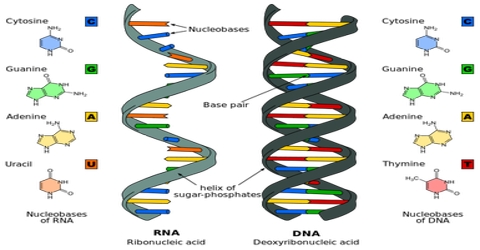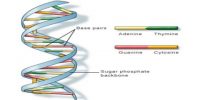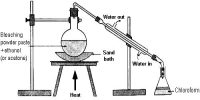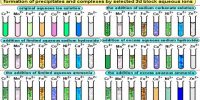DNA and RNA: a Competitive View
- DNA is deoxyribonucleic acid
- DNA is self-replicating.
- DNA is mainly found in the chromosomes (in the nucleus of it cell).
- DNA has double stranded helix and both the helical strands are coiled in opposite directions.
- DNA nucleotides consist of deoxyribose sugar.
- The nitrogenous bases found in DNA are- Purine bases: Adenine and Guanine; Pyrimidine bases: Cytosine and Thymine.
- DNA is the genetic Materials
- DNA is a long polymer with deoxyriboses and phosphate backbone. Having four different nitrogenous bases: adenine, guanine, cytosine and thymine
- deoxyribonucleic acid, is like a blueprint of biological guidelines that a living organism must follow to exist and remain functional
- More stable in alkaline solution
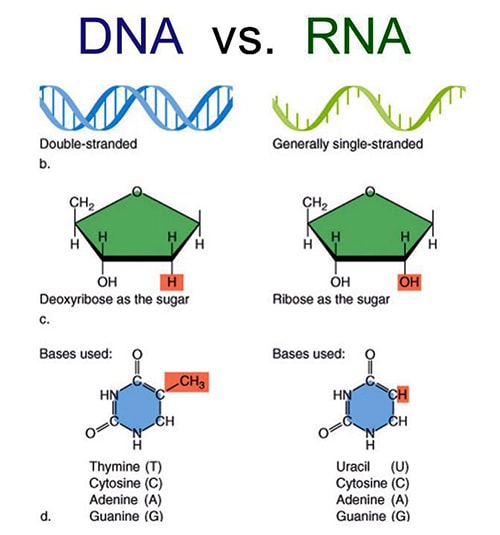
RNA
- RNA is ribonucleic acid.
- RNA is synthesized from DNA when needed.
- RNA occurs mainly in the cytoplasm but it is also found in the nucleolus, nucleoplasm and chromosomes.
- Generally, RNA is formed of a single strand. Double stranded RNA is also found but they are non-helical RNA molecule may be coiled on itself.
- RNA nucleotides consist of ribose sugar.
- The nitrogenous base found in RNA are- Purine bases: Adenine and Guanine; Pyrimidine bases: Cytosine and Uracil.
- RNA when present with DNA is the genetic material.
- RNA is a polymer with a ribose and phosphate backbone. Four different nitrogenous bases: adenine, guanine, cytosine, and uracil.
- RNA, or ribonucleic acid, helps carry out this blueprint’s guidelines.
- It is rapidly hydrolyzed in alkaline solution.
